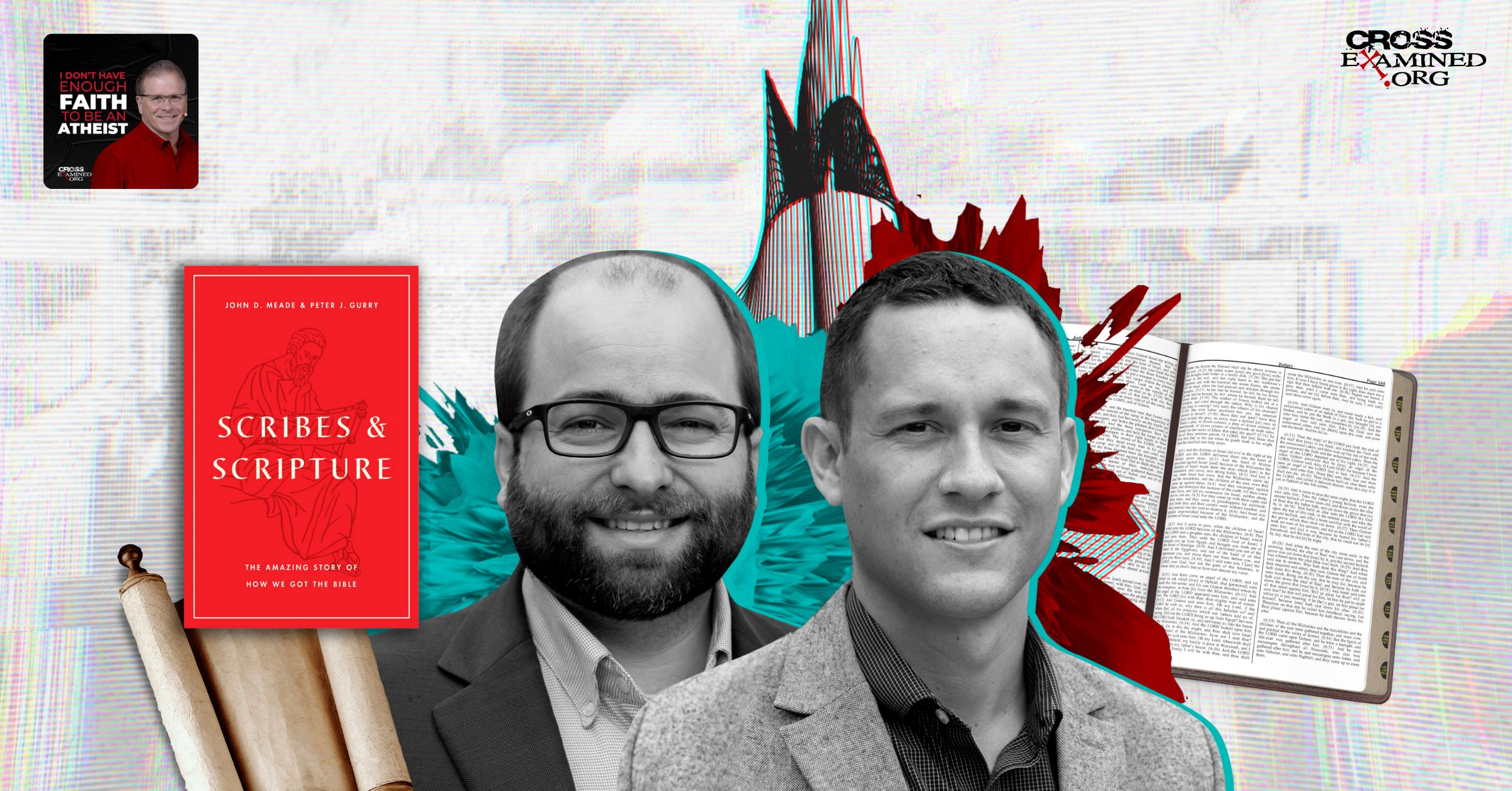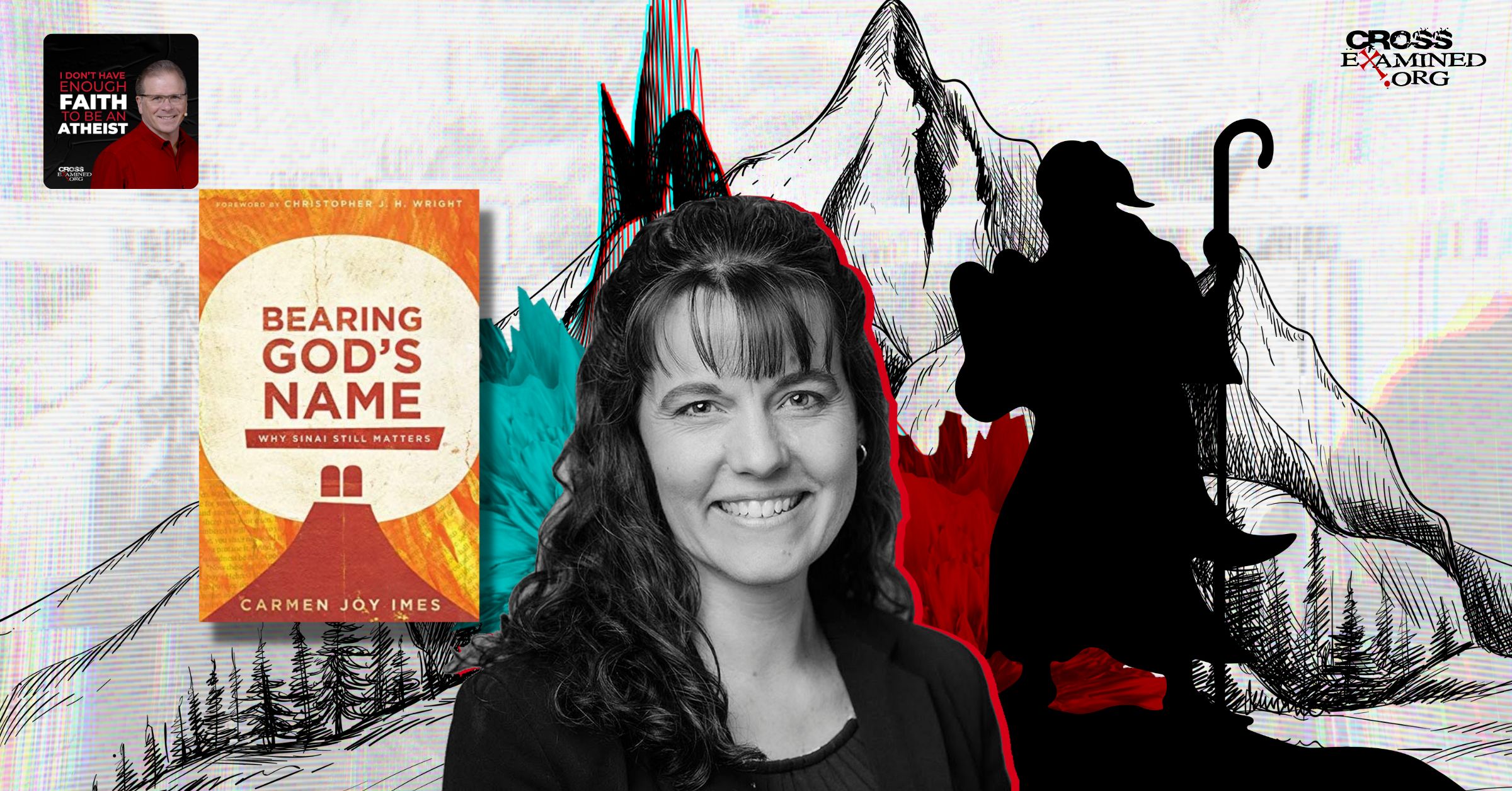By Sherene Khouri
Islam and Christianity claim to be monotheistic religions. They both believe in one supreme God; however, their concept of the nature of the divine being is different. The Islamic understanding affirms in a strong sense the absolute oneness of God through the doctrine of tawhid (Surah 4:171). Allah is one, and he has no partner, rival, or equal. The Christian understanding, on the other hand, upholds the trinitarian nature of God. “God is one (Deut 6:4), while including in that unity of the Father, who sent his Son; the Son, who is sent: and the Spirit, who is sent by them both.”[i] God is an eternal co-inhering community of equals. While the Qur’an portrays the Trinity in terms of a holy family—Holy God, Holy Mother, and Holy Son (Surah 6:101; 5:116), there is no historical evidence that orthodox Christianity ever described the Trinity in this way. This article discusses the biblical, historical, theological, and philosophical understandings of the Trinity to help Christians explain and discuss the doctrine of the Trinity with their Muslim friends.
The Biblical Explanation
The word “Trinity” does not appear in the Bible because this doctrine was formulated in the fourth century during the ecumenical council of Nicene. The later formulation, however, does not mean that this doctrine is fabricated or unbiblical. On the contrary, God being trinitarian in nature is a biblical concept that is deeply rooted in Scripture. For example, the concept of God being a father is not a foreign concept to Jews. It was used in the Old Testament (Exodus 15:2 NIV), and Jesus’s teachings emphasized the personal aspect of the fatherhood of God by using the term “abba” to portray his intimate relationship with God. “[W]hen [Jewish] men addressed God as Father,” as Arthur Wainwright explains, “they would use the more formal ‘abuna’ (our father), but one’s own father would be addressed by using the absolute state of the noun, which is ‘abba’.[ii] Jesus used this term to introduce the Father to the Jews and to explain the Father’s relationship to himself.
God, the Father is distinguished from Jesus (God the Son) in the New Testament. This distinction is clear in Jesus’ prayers before the crucifixion. Jesus prayed to the Father and asked him to “glorify your Son that the Son may glorify you … this is eternal life, that they know you, the only true God, and Jesus Christ whom you have sent” (John 17:3). Jesus was not praying to himself, but to another person (the Father), distinguishing himself from the Father. In the same way, the Apostle Paul makes a similar distinction between the Father and the Son, explaining that “there is one God, and there is one mediator between God and men, the man Christ Jesus” (Eph 4:6). God the Father is not the mediator, but Jesus is the mediator between God and men.
In addition to Jesus being distinguished from the Father, the Holy Spirit is introduced to the divine Godhead in a way that distinguishes him from the Father and the Son. The Spirit is often described in a personal way, which suggests that he is a person, and can speak to men (1 Tim 4:1; Heb 3:7). Jesus tells his disciples about the παράκλητος (paráklētos), who is the third person of the Trinity, whom God will send to dwell with believers after the ascension of Christ. He states, “But when the Helper comes, whom I will send to you from the Father, the Spirit of truth, who proceeds from the Father, he will bear witness about me” (John 15:26). Jesus, in this verse, distinguishes between the Father, Himself, and the Holy Spirit.
In the Bible, the Holy Spirit is not portrayed as a mere state or power because He acts in his distinct personhood. He grieves (Ephesian 4:30), speaks (Mark 13:11-12), teaches (John 14:26), leads (Rom 8:14), and cries (Gal 4:6). Additionally, the Johannine writings call the Spirit παράκλητος (paraklētos), which means the “one who helps, advocates, or comforts someone on behalf of another.”[iii] A “something/someone” who speaks, leads, teaches, and advocates cannot be a mere state or power. On the contrary, he is the One who gives power; therefore, he is a person.
God is revealed in the Bible as one divine being, yet there are distinctions (persons). He was not revealed as a single divine being, as traditionally had been conceived. God is one being in one sense and three persons in a different sense. He is one God who created the universe in one sense and three persons who share the same essence in a different sense.[iv] There are three persons denominated: the Father, the Son, and the Holy Spirit, who deserve to be called God, and yet there is but one God. The scene of the baptism depicts a clear picture of God as Trinity. When Jesus was in the water, “the Holy Spirit descended on him in bodily form, like a dove; and a voice came from heaven, ‘You are my beloved Son; with you I am well pleased’” (Mark 1:10; Luke 3:22; John 1:32). This scene shows that the Christian God is one divine being in three persons.
The prologue of the Gospel of John has the strongest argument for the Trinity. John says in the first verse of the book: “The Word was with God, and the Word was God.” Here is an indication of the divinity of the Word. There is a clue that the Son is distinct from the Father, yet there is fellowship between them. As Wayne Grudem suggests, “the preposition pros (“with”) does not connote merely physical proximity to the Father but an intimacy of fellowship as well.”[v]
Jesus is described as the word and the spirit of God in the Qur’an (Surah 4:171) as well. Most Muslims believe that the word of God is eternal; however, they do not believe that Jesus is eternal with God.
A Historical Explanation
Believing in the trinitarian God does not mean believing in three separate gods but believing in one divine being who is revealed in three persons. Since the doctrine of tawḥid implements numerical meaning, it is hard for Muslims to understand the word Trinity in a non-numerical sense—a metaphysical sense. This is the reason that pushed the Christian Arab apologists to use the word اقنوم (pl. اقانيم) (Uqnoum, pl. Aqanim) to convey the idea of the Greek word ὑπόστασις (hypostasis). The word Aqanim is never used in the Arabic language, except in the doctrine of the Trinity to covey the idea of the divine persons and illuminate the similarities with the concept of the human person. According to Imad Shehadeh, who is a leading contemporary scholar on the subject of the Trinity in Jordan, “the only benefit from using this word [Uqnoum] in Arabic language is to distance the word ‘person’ from God and substitute it with a foreign and an unknown word that conveys its meaning.”[vi] In other words, dedicating a special terminology to the divine Person indicates a special meaning and illuminates the confusion with the human/physical meaning of the word person. In my opinion, this term should be used in conversation with Muslims to avoid the tritheism confusion that might arise from the human concept of a human being as individual consciousness. The divine Aqanim (persons) are three in a way that does not apply to human persons and cannot be read off from human experience apart from revelation.
A Philosophical Explanation
Muslims believe that Allah is an eternal divine being and the creator of the world. In other words, there was no time before Allah, there was nothing that existed before him, and there was no time in history when Allah did not exist. However, this explanation does not make Allah the greatest conceived being because it does not show the relational nature of Allah before creating the universe. Allah has to be relational in nature because he listens, communicates, and receives worship. This is to say that Allah has a relationship with his creation, he did not create the world and left it to face its own destiny. However, if Allah is truly unipersonal and relational with his creation, what about his relationality before the creation? Who was Allah hearing, seeing, and watching before the creation of the cosmos? To whom was he showing kindness and love? All these divine attributes/names require either otherness in the inner being of Allah or another person/creation external to him. Before creation, there could not have been co-communion, mutual recognition, or altruism in Allah because there is no external differentiation to him or internal diversity in him. This limitation makes Allah dependent on his creation. He needs it in order to be the Hearer (as-Sami’), the Seer (al-Baṣir), the Kind (al-Laṭif), the Watcher (ar-Raqib), and the Loving (al-Wadud.) These attributes were disabled before creation. They were not actualized until Allah created the cosmos.
In Christianity, this problem does not exist because of the doctrine of the Trinity. God lives eternally in an intra-relationship (not alone) within himself, and in an inter-relationship with humanity after creation. The three Aqanim are united by their common divinity or whole generic essence. “The persons are also unified by their joint redemptive purpose and work,” says Cornelius Plantinga, “Their knowledge and love are directed, not only to their creatures but also primordially and archetypally to each other. The Father loves the Son, and the Son loves the Father. . . The Trinity is thus a zestful community or divine light, love, joy, mutuality, and verve.”[vii] The divine richness is understood in terms of relationality, with a communion of unity among the three Aqanim. The terms Father and Son are relational terms. One cannot be a parent without having a child and vice versa. Hence, by referring to God as Father, Christians conceive God as being eternally in relation to Himself; this relationship of fatherhood is, in the eternal sense, with the Son.[viii] God is not three separate persons/beings, such as in human person/individual. Instead, He is a unity in diversity.
The belief that God is one divine being and three Aqanim is not self-contradictory because the supposition that “God is either one or three” is logically fallacious. This belief represents the false dichotomy or, what is called, a false dilemma or the black/white fallacy. This fallacy occurs when only two choices are presented yet more exist.[ix] Suggesting that God is either one or three, ignores the option that Christianity presents. The Trinity is a divine, transcendent community of three divine Aqanim: the Father, the Son, and the Holy Spirit. Theologians tend to be very careful about how to use analogies to explain the Trinity because many of the analogies that were historically used conveyed a form of modalism or tritheism. The following analogy is not meant to be literal, but it is intended to answer the question: “how can God be one and three without any contradiction?” Every man/woman is made as one human being and one person. Beethoven, for instance, is a human being because he belongs to the human race, and he is a unique person because of his musical skills, talents, DNA, personality… etc. His personhood is what makes him unique from Mozart or other musicians. He is a human being in one sense and a unique musician/person in another sense. In other words, he is both without a contradiction. In like manner, Christians believe that the Trinity is not a self-contradictory argument because while God is a divine being, He is also three Aqanim. He is a divine being in one sense because He belongs to the divine realm (not to the human race), and he is three Aqanim—the Father, the Son, and the Holy Spirit—in a different sense because He belongs to his own realm Sui generis, where nothing is like him. It would be considered a contradiction if God is one divine being and three persons in the same sense.
Bibliography
Athanasius. Ad Antiochenos 6. Accessed April 30, 2020, https://www.newadvent.org/fathers/2818.htm.
Erickson, Millard. Introducing Christian Doctrine. 3rd ed. MI: Baker Academic, 2015.
Holland, Richard, jr. and Benjamin K. Forrest. Good Arguments: Making Your Case in Writing and Public Speaking. Baker Academic, 2017.
McCall, Thomas H. “Relational Trinity: Creedal Perspective.” In Two views on the Doctrine of the Trinity. Edited by Sexton, Jason S. MI: Zondervan, 2014.
Plantinga, Cornelius, jr. “Social Trinity and Tritheism.” In Trinity, Incarnation, and Atonement: Philosophical and Theological Essays. Edited by Ronald J. Feenstra and Cornelius Plantinga Jr. Notre Dame, IN: University of Notre Dame Press, 1989.
Shehadeh, Imad. Al-Ab wa al-Ibn wa al-Roh al-Qudus Ilah wahid … Amin: Dharoret al-Ta’adudiyah fi al-Wahidaniyah al-Ilahiyah [The father and the Son and the Holy Spirit On God …Amin: the Necessity of the multiplicity in the divine oneness]. Al-Matin, Lebanon: Dar al-Manhal, 2009.
Wainwright, Arthur. W. The Trinity in the New Testament. London, UK: S. P. C. K., 1975
Footnotes
[i] “Trinity,” s.v. The Evangelical Dictionary of Theology, (Baker Academics, 2017).
[ii] Arthur W. Wainwright, The Trinity in the New Testament (London, UK: S. P. C. K., 1975), 45.
[iii] “παράκλητος (paraklētos),” s.v. Lexham Theological Wordbook, (Bellingham, WA: Lexham Press), 2014.
[iv] Athanasius. Ad Antiochenos 6, accessed April 30, 020,
[v] Millard Erickson, Introducing Christian Doctrine, 3rd ed., (MI: Baker Academic, 2015), 112.
[vi] Imad Shehadeh, al-Ab wa al-Ibn wa al-Roh al-Qudus Ilah wahid … Amin: Dharoret al-Ta’adudiyah fi al-Wahidaniyah al-Ilahiyah [The father and the Son and the Holy Spirit On God …Amin: the Necessity of the multiplicity in the divine oneness], (al-Matin, Lebanon: Dar al-Manhal, 2009), 31. The original Arabic renders as: “الفائدة الوحيدة في استخدام هذه الكلمة في اللغة العربية هي ابعاد كلمة ’الشخص’ عن الله واستبدالها بكلمة اجنبية غير معروفة في معناها.”
[vii] Cornelius Plantinga jr. “Social Trinity and Tritheism,” in Trinity, Incarnation, and Atonement: Philosophical and Theological Essays, ed. Ronald J. Feenstra and Cornelius Plantinga Jr. (Notre Dame, IN: University of Notre Dame Press, 1989), 31.
[viii] Thomas H. McCall, “Relational Trinity: Creedal Perspective,” in Two views on the Doctrine of the Trinity, Sexton, Jason S. ed., (MI: Zondervan, 2014), 133.
[ix] Richard Holland Jr, and Benjamin K. Forrest. Good Arguments: Making Your Case in Writing and Public Speaking (Baker Academic, 2017), 39.
Recommended resources related to the topic:
Answering Islam by Dr. Frank Turek (DVD Set, Mp4 and Mp3)
Can All Religions Be True? mp3 by Frank Turek
_____________________________________________________________________________________________________________________________________________________
Sherene Khouri was born into a religiously diverse family in Damascus, Syria. She became a believer when she was 11 years old. Sherene and her husband were missionaries in Saudi Arabia. Their house was open for meetings, and they were involved with the locals until the government knew about their ministry and gave them three days’ notice to leave the country. In 2006, they went back to Syria and started serving the Lord with RZIM International ministry. They traveled around the Middle Eastern region—Turkey, Jordan, Egypt, Lebanon, Syria, and United Arab Emirates. Sherene was also involved in her local church among the youth, young adults, and women’s ministry. In 2013, the civil war broke out in Syria. Sherene and her husband’s car was vandalized 3 times and they had to immigrate to the United States of America. In 2019, Sherene became an American citizen.
Sherene is an assistant professor at Liberty University. She teaches Arabic, Religion, and Research classes. She holds a Ph.D. in Theology and Apologetics, an M.A. in Christian Apologetics from Liberty University, and a B.S. in Biblical Studies from Moody Bible Institute. She is also working on a Master of Theology in Global Studies at Liberty University and an M.A in Arabic and Linguistics from PennWest University.
Original Blog Source: https://bit.ly/3udDybq










